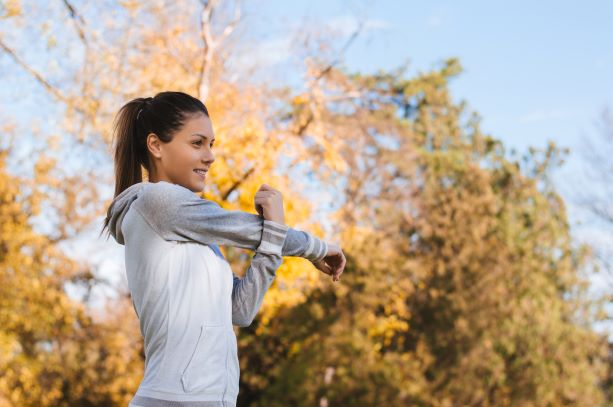Anxiety and exercise have been linked for quite a while now in studies and among mental health experts. We’ve heard how beneficial it is to move and release some of the tension and worry we accumulate.
Thus, our first inclination might be to relax. We know how soothing it can be to stretch and breathe deeply. So, naturally, exercising for anxiety brings to mind calming activities like yoga or tai chi. Jogging or weight lifting seems to be counterintuitive.
But you might be surprised.
The truth is, people often feel better when they work with the on-edge feeling we feel when we are anxious. If you get that feeling a lot, learning to use those spikes in heart rate could be beneficial.
Cardio Helps Keep Anxiety in Check
Anxious thoughts, fear, and worry often promote jitters and edginess resulting in increasing upset and an elevated heart rate. However, cardiovascular activity has been shown to provide an antidote to the ups and downs triggered by erratic and irrational feelings.
Essentially, routine aerobic exercise pushes your heart rate up intentionally. Then, when you rest, your heart rate slows down naturally. Doing this regularly trains the heart and lungs, regulating the heart rate and helping to offset the high-alert sensations that come with fear and panic.
Recently, scientists tested this idea, finding that aerobic exercise served to desensitize anxious people to “cognitive vulnerabilities” that arise when anxiety is accompanied by a racing pulse. In other words, power exercises help us become used to a racing pulse and less mentally and emotionally affected by it during anxious moments.
To get the full anxiety-busting benefits, it stands to reason that we might do well to incorporate more pulse-elevating activities into our lives. Consider these three power exercises that experts claim keep you focused, fit and more worry-free:
1. Aerobic Dance (Zumba, Jazzercise, etc.)
Dancing and moving in coordination with music involves the entire body and, if done in a class, can help reduce self-consciousness. As you follow the moves, you become mindful of your body, your breathing, and the synchronicity of the moves.
Research shows too that the shared activity activates neural pathways in those participating. Normal mental boundaries in our minds fall away, creating a sense of shared purposes, belonging and connection. You may find that after a vigorous, mood elevating aerobic dance class with strangers may feel less anxious socially too.
2. Boxing or Kickboxing
Boxing is a great way to burn off the edginess and fear of anxiety while working up a sweat. Incorporating the full use of your limbs in the movements, you quickly get your heart pumping and feel a power surge of “feel good” endorphins. Soon, your mood lifts and your focus sharpens.
Anxiety-prone participants like boxing particularly because you are required to stay in the moment. You have to pay attention to what your body senses and where your punches and/or kicks land.
Boxing can also provide a sense of personal power and control. Depending on the source of your worry, the activity can help restore feelings of preparedness and safety. In addition, it is a good release for anger, stress, and that overwhelmed feeling.
Furthermore, the sense of accomplishment and improved self-esteem may encourage more self-care and healthy choices.
3. Weight Training
In past decades, weights were considered bulk builders. However, the benefits for all body types and ages are rapidly becoming apparent. In our tech age, more and more of us find ourselves sedentary and stationary. Our muscles and tendons aren’t what they used to be, and our moods may be suffering as a result.
According to wellness experts, strengthening our bodies with weight-bearing activity increases the heart rate while releasing testosterone. Making time for curls and lifts actually builds us up physically and mentally with muscle and feel-good hormones.
In addition, therapists encourage weight training because it is an activity that teaches endurance perseverance. You learn to deal with discomfort and push through it for the sake of the goal. The mastery of the activity can help you learn to face your anxiety and feel more in control of your body and choices.
____________________
All in all, it’s vital to remember that your body and mind can withstand trying times. Even if you aren’t ready to try these activities, go for a brisk walk and enjoy nature or take a bike ride to clear your head.
Remember too, it’s okay if you need help with anxiety and to seek help to face it. I would appreciate the opportunity to help you live purposefully, one healthy day at a time.
For more information about anxiety counseling, click here.
About the Author

Julia Nelson, LPCA, LMFTA is a psychotherapist and owns a private practice in Henderson County, (Flat Rock) NC and Rutherford County, (Forest City) NC. In general, she specializes in couples counseling, anxiety and depression counseling, premarital counseling, and parenting classes. She is also a Certified Clinical Military Counselor. To find out more about Julia click here:
Nelson Christian Counseling.
Want tools for your life and relationship? Get my latest blog post by liking my Facebook page here.

